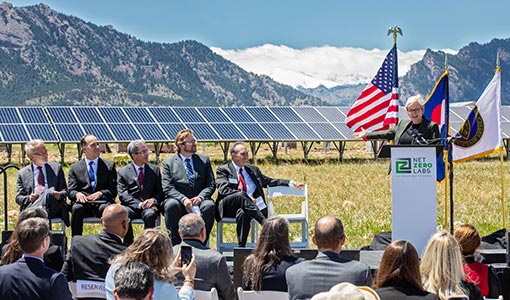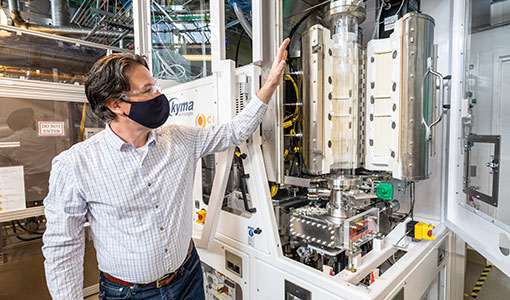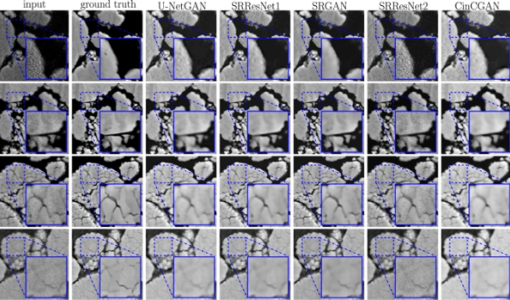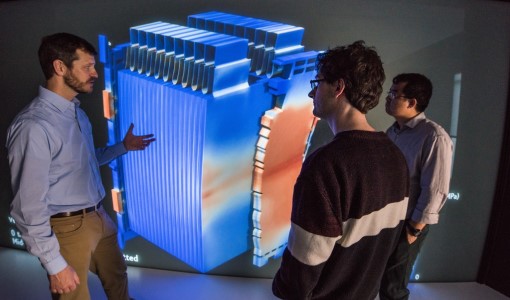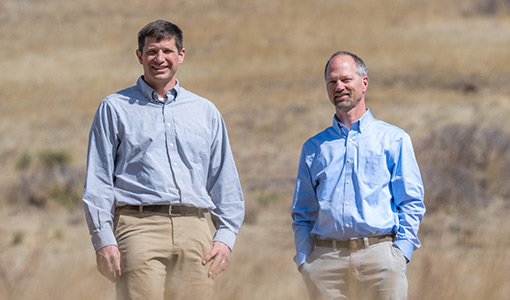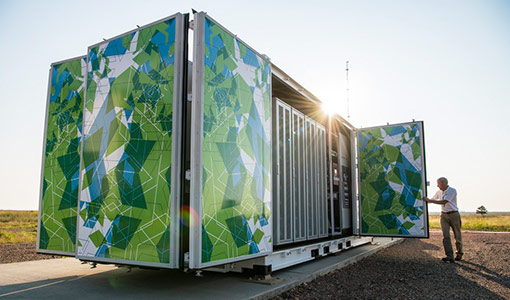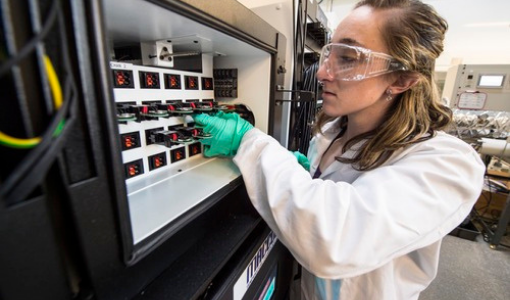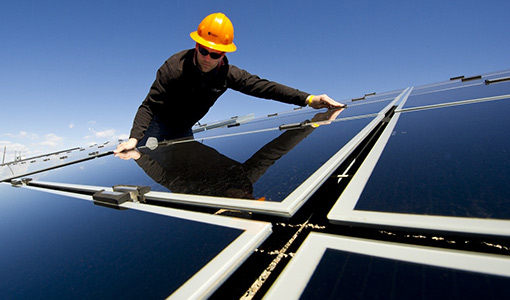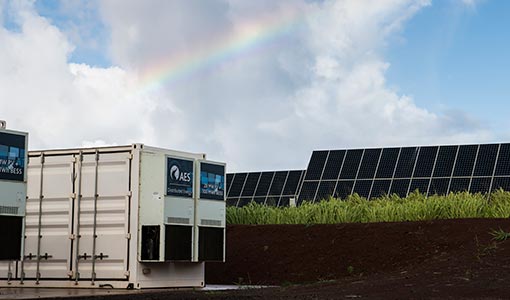Explore our collection of new stories for this topic.
Search or filter for a specific story using the options below.
May 2022
NREL Pledge Curbs Emissions as Part of Larger DOE Initiative
Martin Keller, director of NREL, said he expects the Flatirons Campus near Boulder, Colorado, will reach net zero emissions annually by the end of fiscal year 2023 and the South Table Mountain Campus outside Golden, Colorado, to hit that achievement three years later.
ARPA-E Funding Drives Innovation, Industry Partnerships at NREL
Among NREL's many funding agencies, the U.S. Department of Energy's Advanced Research Projects Agency-Energy (ARPA-E) funds what is perhaps some of NREL's most innovative work.
Expanded Nanoscale Imaging Lends a Clearer Vision for the Future of Batteries
At NREL, there is a common consensus that X-ray imaging techniques hold the key to unlocking critical information about the performance of energy storage systems.
Laboratory Partnerships Bolster Battery Recycling Prize Solutions
The Lithium-Ion Battery Recycling Prize allows entrepreneurs to access state-of-the-art research facilities as technical partners in collaboration within the American-Made Network.
Department of Energy Announces Solar District Cup Class of 2021–2022 Winners
On Monday, April 25, DOE announced the top division winners and Project Pitch Champion in the Solar District Cup Collegiate Design Competition Class of 2021–2022. A total of nine student-led teams won first, second, or third place across the three divisions, plus four honorable mentions.
April 2022
NREL Researchers Plot Energy Storage Under Our Feet
Computer modeling done by scientists at NREL and Colorado School of Mines confirmed the feasibility of using depleted oil and gas wells as a space for energy storage.
March 2022
Battery Research Tackles New Challenges for Behind-the-Meter Stationary Storage Systems
Researchers at NREL are leading the development of new lithium-ion (Li-ion) battery designs specific to stationary storage requirements.
February 2022
Contaminant Identification Refines Recycling for Lithium-Ion Batteries
As the predominant choice for high-powered personal electronics, electric vehicles, and grid-scale storage solutions, lithium-ion (Li-ion) batteries continue to dominate the marketplace. To meet clean energy goals of the future, researchers must develop safe and sustainable recycling processes for these batteries.
REopt Is Not Lite Anymore
REopt, a free, techno-economic decision support model, helps users optimize energy systems for buildings, campuses, communities, and microgrids. Once called REopt Lite, the REopt tool is dropping the "Lite" in 2022 to better reflect its true status as a heavy-hitting and comprehensive optimization tool.
January 2022
Happy Hours: Energy Storage Could Support the Grid Every Hour of the Day, All Year Long
The latest phase of the Storage Futures Study finds the grid operates more efficiently with high levels of energy storage across all studied system configurations and grid mixes.
Share
Last Updated May 5, 2025

